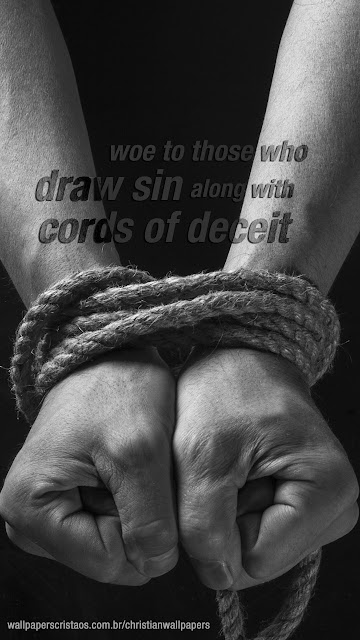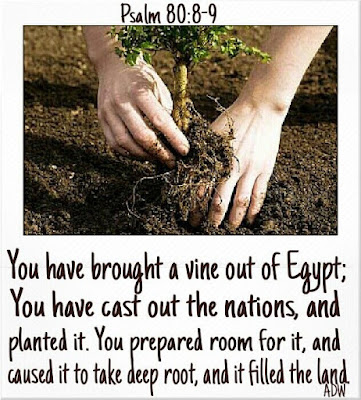Working my way through Isaiah for the Advent season, using this study. These notes are my study answers--interesting to no one but me!
Day 1
1. The 12 sons of Jacob are Reuben, Simeon, Levi, Judah, Dan, Naphtali, Gad, Asher, Isacchar, Zebulun, Joseph, and Benjamin.
2. Explain the prophecy of Judah from Genesis 14:10
Gen 49:10 The scepter will not depart from Judah, nor the ruler's staff from his descendants, until the coming of the One to whom it belongs, the One whom all nations will honor.
I think of a scepter as a symbol of power, so Judah will be a leader and his sons leaders until the coming of the Messiah ("the One to whom it belongs, the One whom all nations will honor).
It's a Messianic prophecy.
All of the sons and their prophecies:
Reuben--as unruly as a flood, will be first no longer (v. 3-4)
Simeon & Levi--two of same kind, their weapons are instruments of violence--may I never be a part of their plans, for they murder men and cripple oxen for sport. (v.5) A curse on their anger and wrath, He will scatter them (v.7)
Judah--your brothers will praise you, will grasp enemy by neck, all relatives bow before, like a young lion who has eaten his prey (v. 8), ties foal to grapevine, washes clothes in wine
The context of this prophecy is Jacob's deathbed blessing upon his sons, "Gather around me, and I will tell you what will happen to each of you in the days to come." Genesis 49:1 NLT
Zebulun--will live by seashore, be a harbor for ships (v.13)
Issachar--sturdy donkey resting between 2 saddlepacks, when sees how good land is he will rest his load and submit to hard labor (v. 15) (subjected to invading armies?)
Dan--will govern his people, but be like a poisonous viper on the roadside striking (v.16-17) BKC says that there was a discrepancy between his calling (Dan means justice) and his achievement. The tribe of Dan was treacherous like the snake and in the period of Judges was the first to turn to idolatry.
Gad--will be attacked by marauding bands, but he will attack them when they retreat (v. 19)
Asher--will dine on rich foods and produce foods fit for kings (v.20)
Naphtali--doe set free who bears beautiful fawns. (v. 21)
Joseph--foal of a wild donkey on ridge, archers attack him but his bow remained taut and arms were strengthened by mighty one. May the blessings of your father surpass the blessings of the mighty mountains. prince among brothers. (v. 22-26)
Benjamin--a ravenous wolf, devouring his enemies in the morning and dividing plunder in evening. (v. 27)
2 Samuel 7:12-16 God's prophecy via Nathan to David--when you die, I will raise up one of your descendents, he will build a house, a temple for my name. My favor will not be taken from him. Your house and your kingdom will continue before me for all time, your throne will be secure forever.
Matthew 1: This is a record of the ancestors of Jesus the Messiah, a descendant of Abraham and David. 14 generations (3X)....from Abraham to David, David to Babylonian exile, exile to Jesus
1. Ahijah the prophet met Jeroboam leaving Jerusalem (Jeroboam was the son of Nebat, a member of the tribe of Ephraim) While Jeroboam was a young man, Solomon made him superintendent over his men in building a fortress and other public works (Wikipedia). In this position, he became aware of the widespread discontent of the populace due to Solomon's widespread extravagance. After being influenced by the words of Ahijah, he began to develop conspiracies. He was discovered, fled to Egypt until after death of Solomon. Then he returned with a contingent and requested that Rehoboam lower taxes. When Rehoboam refused, he withdrew allegiance to David and formed the Northern Kingdom (Samaria). Only Bejamin and Judah remained and formed new kingdom of Judah under Rehoboam. Rebuilt Shechem and established two state temples with golden calves...one in Bethel and one in Dan. The goal was to keep people away from old allegiances in Jerusalem. Bethel and Dan were already cultic sites so this was more of a revival of that than a new thing. Toward the end of Jeroboam's reign, Abijah (Rehoboam). Jeroboam was badly beat back by Abijah, lost Bethel and some other cities.
2. Jeroboam built separate centers of worship and included golden calves. God's directions via Moses before they went into the Promised Land were not to worship as the pagan do (Deut 12:4) They were to destroy their centers of pagan worship and everything affiliated with them. Instead they are to seek God at the place He choose (Deut 12:5). They are told their pattern of worship will change and that they are to bring all their offerings and celebrate at the place chosen by God: "You must celebrate there," with their family and servants. Additionally, they are cautioned, "be careful not to sacrifice your burnt offerings anywhere you like" (Deut.12:12). Offerings of meat and blood are to be made only where the Lord approves...they are not to drink the blood. (Deut 12). They should only celebrate Passover and the Feast of Booths at the place of the Lord's choice (Deut 16). Solomon dedicates the temple before all of Israel and pleads to the Lord, "May You watch over this temple day and night...may You always hear the prayers I make toward this temple" (1 Kings 8:28-29). Solomon asks, if the people of Israel go and fight where you send them and pray toward this temple, may God listen and honor their cause. If they sin and end up in captivity but repent and pray to You, hear and uphold their cause (1 Kings 8:44-48). The Lord hears their prayers and has set apart this temple to be holy . He will always watch over this temple (1 Kings 9:3). He rejected Joseph's descendants and chose Judah's, on Mount Zion He chose to build a temple (Ps 78:67-69). The woman at the well asked about the proper place to worship and Jesus said the time is coming when it won't matter (John 4). True worshipers will worship in "spirit and truth." Exodus 20:4-5--You must not make of yourself an idol of anything from the heavens, earth or sea. Deut 21:5--The Lord has chosen the Levites to minister before him and to decide legal/criminal. Exodus 28:1--God set apart Aaron and Levites for priestly service.
*******************************************************************************
Background and Outline of Isaiah from Andrew MacLaren
The Center of Interest. The prophet deals primarily with the nation and not with the individual. He speaks primarily of the present and not of the future. These two facts must be kept constantly in mind as we read and interpret the book.
Analysis
1-Discourses Concerning Judah and Israel, Chs. 1-12.
2-Some promises and rebukes, Chs. 1-6.
3-The book of Immanuel, Chs. 7-12.
Prophesies against Foreign Nations, Chs. 13-23
4-The Judgment of the World and the Triumph of God's People, Chs.24-27.
5-The judgments. Ch. 24.
6-The triumph. Chs. 25-27.
Judah's Relation to Egypt and Assyria, Chs. 38-32.
The Great Deliverance of Jerusalem, Chs. 33-39.
The Book of Consolation, Chs. 40-66.
7-God's preparation for certain deliverance, Chs. 40-48.
8-Jehovah's servant, the Messiah, will bring this deliverance. Chs. 49-57.
9-The restoration of Zion and the Messianic Kingdom, with promises and warnings for the future. Chs. 58-66.
 "What sorrow for those who drag their sins behind them with ropes made of lies, who drag wickedness behind them like a cart! (v. 18 NLT)
"What sorrow for those who drag their sins behind them with ropes made of lies, who drag wickedness behind them like a cart! (v. 18 NLT)












